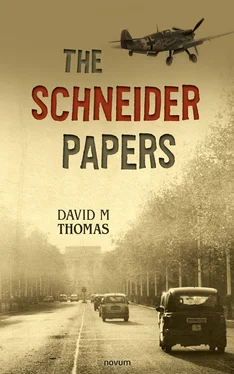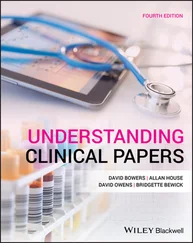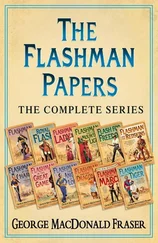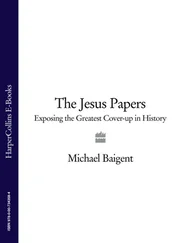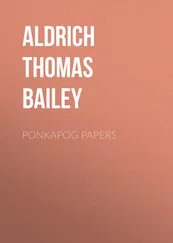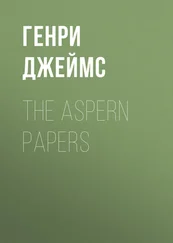Check-in at the DLH reception counter was quick and efficient. He slipped into German easily, unconsciously. He moved to a bench seat to await the call to proceed through passport control to the ‘airside’ holding area. Within sight of the Imperial Airways bi-plane, he remembered his own flight to Cape Town in ’31.
That old battered Fokker monoplane. What was it called? … Cat? … No. Mouse … that’s it. Owned by ‘Chalky’. It was a Royal Aero Club event, thought up one rainy afternoon in the Piccadilly clubhouse. First prize was to get there in one piece! Three of them, Ronny ‘Chalky’ White and himself designated pilots, and Billy Westlake as navigator. He was in charge of necessary crew documentation, and Billy was lumbered with the logistics of gasoline supplies and planned stopovers. Any Aero Club event is by definition a bit amateurish, deliberately so, members insist on it! all part of the fun! As three serving officers they only got to go because of the intervention of Chalky’s father, Air Vice Marshal Arthur ‘Chalky’ White. Approval given. ‘Good for service morale,’ was his executive explanation.
He remembered the beauty of the desolation; and shadows and the rocks being shaded from light brown to pale mauve to deep purple, depending on the angle of the sun. A kaleidoscope of moving colours. Nubian desert magic.
He was in deep contemplation: we followed the Nile most of the way passing over the Aswan dam and reaching Khartoum in the early afternoon. Yes, that’s right. After Khartoum the desert region pettered away to scrubland. Is that when we had that engine misfire fright? Anyway it sorted itself out and we landed at that new station … Juba in southern Sudan. That’s where we had a spot of bother taxiing, one of the wheels sank deep into the mud after a heavy downpour. No damage done. Got a lot of friendly villagers to push us out. Then they all stood in a row and waved us off. After Juba, Billy and I had to concentrate hard on navigation. Dodoma, or was it Tabora, in Tanganyika, where Billy got the jippy tummy? Then the persistent low cloud near Fort Rosebery forced us down to less than a thousand feet – treetop flying. First sighting of wild giraffes ever was around that area. We left the hill country and dropped down to swamp and forest from horizon to horizon. Now where was it we stayed at the District Commissioner’s house? N’dola? Mosquito capital of Africa, Chalky called it. Poor bugger was bitten all over, covered in bites, we thought it was smallpox! Well, we said it was smallpox, just to scare Chalky! Then it was Broken Hill aerodrome. Mining camp. Never did find out what they mined for. Hotel name was … can’t remember. But I remember Chalky looking for ointment. Then we went off course, dodging low cloud and thunderstorms. Billy said that we could land up in Livingstone and possibly see the Victoria Falls …
In his mind far away flying the equatorial skies of East Africa heading for Bulawayo and the Transvaal, his wandering eyes focused on a hanger with the name Olley Air Services painted in red above the doors. Brought down to earth; immediate transfer from Africa to a dull Croydon morning. The sign associated itself with his old RAF colleague Cecil Bebb, who flew out of this very airport a few months ago to pick up General Franco in the Canary Islands and drop him off somewhere in Spanish Morocco. The act fanned, if not started, this Spanish war business.
Like all British international airports, Croydon would have Special Branch scrutiny on comings and goings, and therefore, reasoned Mason, might not the Government be directly involved in the Franco airlift? He then remembered Cartwright’s comment, and decided it was. He cleared passport control and sat down in the airside lounge. He looked again at his unfamiliar but well used looking passport. He opened the front page, and there was his face perforated with a round blue stamp staring up at him, name of George Madden, journalist. He quickly flicked through pages of visas and customs stamps befitting a well-travelled journalist before putting it away in his inside jacket pocket. He swapped the passport for a packet of business cards tied with a rubber band advertising a Mr G Madden, Journalist, with The Daily Sketch logo and its Fleet Street address. He specialised in international affairs, apparently, and his brief was to write a general Germany review post a ‘highly’ successful 1936 Olympics. Ideal excuse to move around the country, if needs must. A driving licence was also included in his new identity package.
The female voice echoing around the hall sound system announced the immediate departure – ‘and please line up with your boarding cards ready at the departure desk’ – of Deutsche Lufthansa flight 1032 to Amsterdam and Berlin. What was it about a woman’s voice, thought Mason, the inflections, the natural, coaxing, caring delivery with the underlying message of ‘come on, fly me, I’m safe.’ In contrast, at railway stations all the announcers are men, and with deadpan unintelligible male muffled voices, indifferently inform of departure times of trains to Woking, Wolverhampton or Birmingham. Not quite the same.
A seemingly full complement of passengers answered the call, gathering shopping bags and briefcases; a mother and then the father called back a wandering daughter, and slowly all coagulated into an orderly line before the quite pretty, uniformed announcer at the departure desk. A mix, thought Mason, German and English, with some of indeterminate nationality. She’s Spanish or perhaps Portuguese; here’s a Slav family. I would guess a Prussian, sporting an impressive Kaiser moustache in the dark brown fur-collared overcoat and matching homburg hat. Two orthodox Jew businessmen dressed in long black coats and curly sidelocks, probably in the Amsterdam diamond trade. He noticed two professional types talking quietly behind him, obviously together he surmised, one, like him, without an overcoat, the other in a baggy, light beige topcoat, with large square pockets and with a belt loosely tied around the waist. Probably Berlin bound. He didn’t know why he thought this. He’d ponder that conclusion on the plane.
They left the departure area in single file and crossed the grass apron to the Junkers Ju52 airliner. Impressive was the word. A three-engine monoplane, currently the most popular and successful passenger aircraft in the world, painted all white, with black engine cowlings, in the corporate colour of Lufthansa, with a huge bold black swastika painted on the tailplane, the corporate logo of the German Reich; a deliberate juxtaposition image of the most aggressive and dangerous state in Europe and the most versatile of commercial 1930s airliners.
Mason stopped for a moment to assess the Ju52; he had not been this close to one. Three engines, one at the cone, directly in front of the cockpit, and one on each wing. BMW air cooled radial engines, good idea, saves on a radiator, but with complicated plumbing and maintenance. Earlier variants had an American Pratt & Whitney and even a good old Bristol Pegasus power-plant. BMW probably incorporated a few technical ideas from each manufacturer into this variant.
Next to the portable stairs leading to the interior of the airliner stood a white-jacketed steward who greeted each passenger in turn with the welcome invitation to board the aircraft.
Mason liked to sit at the back. He had been in a plane crash, and statistically the rear end is the safest part of the fuselage. It was free seating, first on gets the most choice. Now he realised why the Prussian had expertly manoeuvred himself in front of him in the final line-up at the departure gate. He was now ensconced at the front, immediately next to the galley. As he removed his heavy overcoat with the beaver fur collar, he gave a triumphant and arrogant stare down the aisle to the other passengers settling in behind him.
Читать дальше
